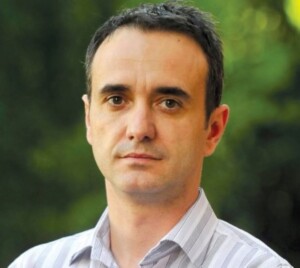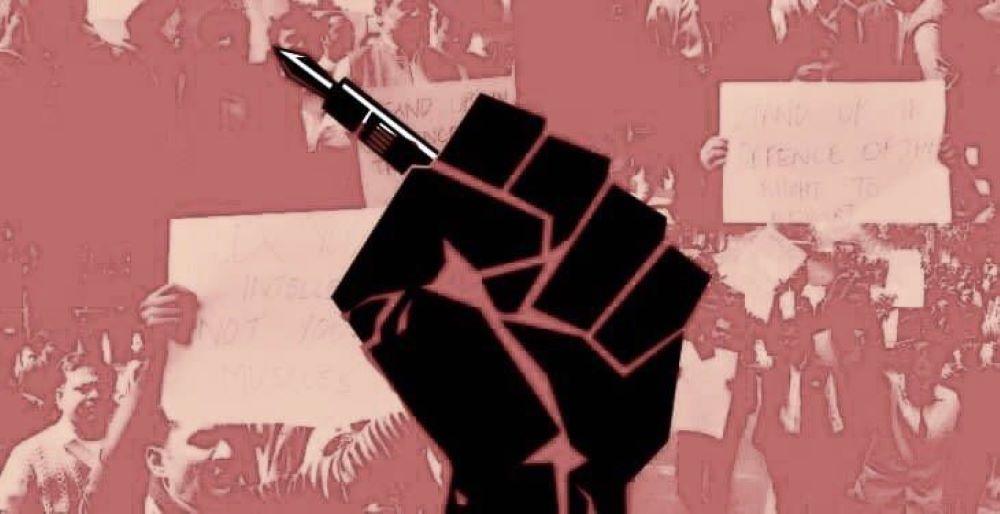For ten years we have been writing about the attempts to break the linkages of the triangle politics – business – media, as one of the biggest social evils that still holds the journalistic market with its head down.

Mladen Chadikovski
Media and politics? Independent journalism? Subjective approach to the problems of politicians or objective observation of the problems of the citizens? What is media, news and journalists? In the midst of a general chase and flood of false narratives, how are the Macedonian televisions and news houses coping with the influx of new techniques provided by the modern tools of the new era – social networks and smartphones, instead of a camera and microphone in hand, a notebook and voice recorder in the right pocket? How does today’s journalism respond to the challenges, still float among the apparent freedom, the tendencies for (self) censorship and the financial dependence on politics?
For ten years we have been writing about the attempts to break the linkages of the triangle politics – business – media, as one of the biggest social evils that still holds the journalistic market with its head down. There are a number of reasons that have predetermined the media scene in Macedonia to crawl into a swampy phase from which it is very difficult to get out, and there may not even be a desire to get out of it. The influx of public money with which the Government managed to buy the affection of the media in the country, in a decade that ended 4 years ago, made a serious distortion of the market in Macedonia. It created conditions for the editors-in-chief and media owners to race for public money, instead of a race of journalists for quality and professional journalism. This resulted in ruined newsrooms, and copy-paste journalism that only tagged along the ratings of Turkish series and turbo folk shows. It created a media-political marriage of interest, in which the spouses caress each other, like in a Spanish soap opera. The public interest suffered, as well as the freedom of the media and the journalistic professionalism.
That unsustainable situation was ostensibly cut short after the change of government. The sources of public money have dried up, the media market has relaxed from the daily pressures. The mainstream media made a quick change in editorial policies, again! All this was partially reflected in the country’s rating on the list of “Reporters without Borders”, with a slight rise from the destroyed position on 111th place in 2017 to 92nd last year. But was that enough?
It turns out that the problems in the country are systemic.
The first major problem is the small market and the huge number of media (120 televisions and radios, several daily newspapers and about 200 portals), all in a race for a piece of the marketing cake that does not exceed 20-25 million euros per year. In such conditions, it is difficult to talk about real financial independence, and when it does not exist, then it is difficult to talk about independent and objective journalism. Dependence on the political and business centers of power remains to be a driver of the market, with a tendency of political factors, and most often of some of the media themselves, to bring back state money in the media sphere. They are still not few. Through elections, covid programs and released concessions, the state “released” about 6 million euros for the media last year.
Most of the mainstream media outlets did not make substantial changes in their work, adhering to the traditional system of television or print journalism and following the inherited inadequacy of the program.
On the other hand, quality can be created in the public television and radio service in true and quick ways. From there, qualitative changes can begin to raise professional standards, as a condition for creating the next generation of journalists, which will follow the world trends in content behind which stand only the public interest and the citizens.
Freedom is hard to gain, but following the Balkan approach to things, it can be very easily lost. Let this thought remain written as a guide in the minds of the real professionals in Macedonia, so that it would not happen, on the principle of “two steps forward, three in reverse”, to go back to where we came from.
Mladen Chadikovski is the President of the Association of Journalists of Macedonia (AJM), a journalist with many years of professional experience in covering topics in economics and politics.



Leave A Comment